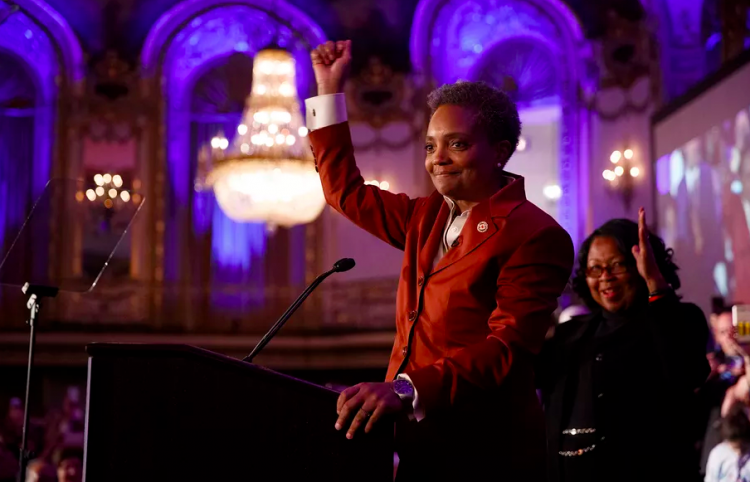Times Are Changing In U.S. Politics

Eighteenth-century writer Samuel Johnson once said, “a woman's preaching is like a dog's walking on his hinder legs. It is not done well; but you are surprised to find it done at all," summarizing the belief of the time that women were not capable of holding positions of power.
Two hundred years after the idea of a mere woman holding such a small position of power as priesthood was unthinkable, Lori Lightfoot became the first openly gay black woman to be elected as Mayor in a major U.S. city.
Lightfoot ran against Toni Preckwinkle in Chicago's 2019 mayoral election. She beat Preckwinkle winning 73.7 percent of votes thus winning all 50 of the city's wards and is expected to take office during the end of May.
Born in Ohio as the last of Elijah and Ann Lightfoot’s four children, Lightfoot graduated from University of Michigan with honors in 1984 before continuing her education at the University of Chicago Law School. Along with her wife, Amy, she is the mother of a 10-year-old daughter and has lived in Chicago for the past 33 years except for her single year stint clerking for the Michigan Supreme Court.
She has worked as a senior equity partner at a private law firm as an Assistant United States Attorney and as the chair of Chicago’s Police Accountability task force.
Lightfoot based her campaign on the pledge of “People First.” This pledge outlined her plan to begin the process of removing corruption from a self-serving system. This process includes putting a term limit for both the mayoral position and for chairmanships on the city council as well as banning city officials from holding other outside jobs that may conflict their duties as a public servant.
For the people, she plans to create programs that aid previously incarcerated citizens return to normal life by providing them with affordable housing and educational opportunities. A significant piece of her platform is promoting the wellness of and providing more business opportunities for minorities in the city. She wants to protect immigrants and supports the abolition of ICE.
For the city, Lightfoot plans to revive Chicago’s economy by focusing on bringing more opportunities to neglected parts of the city. She wants both the downtown and neighborhood areas to thrive equally, instead of one over the other. She also wants to expand affordable housing options by amending zoning codes and devoting time and energy to preventing homelessness.
She comes into office at the time of a change where women, people of color, and members of the LGBTQ+ community are being taken more seriously and moving into positions of power. In the 116th United States Congress, 106 of the members are women, 54 are African American, 42 are Hispanic American, 14 are Asian American, and 4 are Native American. There are also 10 members of Congress who are openly a part of the LGBTQ+ community. This year's freshman class in Congress was the most diverse ever.
During the 2016 U.S. Presidential election, Hillary Clinton made history by standing in front of thousands of people in Philadelphia at the Democratic National Convention and accepting the first official presidential nomination ever given to a woman by one of the major political parties.
Clinton didn’t win, but election season has started again. Six of the twenty-one people currently throwing their hat in the ring are women, and no one is batting an eye.
Current day U.S. Supreme Court Justice Ginsburg once said, “women belong in all places where decisions are being made,” highlighting a change in the attitude about women belonging in positions of power. Lori Lightfoot's election is just the beginning.







